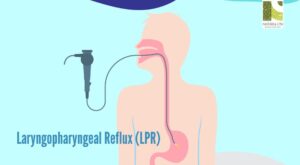Burnout by Moonlight: The Hidden Psychological Impact of Juggling Multiple Jobs

Exploring the mental toll of moonlighting in today’s hyperproductive culture
In the era of side hustles, passion projects, and remote gig work, the concept of moonlighting—holding a second job outside of your primary employment—has become increasingly normalized. Some take it up for financial security. Others do it to explore creative pursuits or entrepreneurial dreams. But beneath the flexibility and economic empowerment lies a pressing question:
What is moonlighting doing to our mental health?
At nellikka.life, we delve into the often-unspoken consequences of moonlighting—especially its long-term impact on emotional well-being, cognitive health, and work-life balance.
What is Moonlighting?
Moonlighting refers to taking on additional paid work outside of one’s primary job, often after regular working hours or during weekends. This can include:
- Freelancing in another industry
- Running a small business on the side
- Remote gigs, teaching, content creation, or consulting
- Contractual jobs in tech, healthcare, or finance sectors
With remote work and the gig economy booming, moonlighting has become more accessible—and more tempting—than ever.
The Cognitive and Emotional Costs of Moonlighting
1. Cognitive Overload and Decision Fatigue
Balancing two jobs means your executive brain functions (planning, memory, judgment) are constantly working overtime.
- The brain isn’t wired to switch contexts repeatedly without a recovery period.
- Over time, this leads to decision fatigue, where even simple tasks feel mentally exhausting.
A study in the journal Neuropsychologia (2016) highlighted that multitasking across different roles reduces attention span and working memory, both of which are crucial for quality decision-making.[1]
2. Sleep Disruption and Circadian Misalignment
When your primary job ends at 6 PM and your side hustle begins at 7 PM, rest takes a back seat.
- Sleep deprivation interferes with emotional regulation, making you more prone to irritability, anxiety, and depression.
- Long-term sleep disruption affects cognitive performance, immunity, and even cardiovascular health.
According to the Sleep Foundation, adults working more than 60 hours a week are at higher risk for insomnia, chronic fatigue, and burnout.
3. Loss of Social and Personal Time
Moonlighters often sacrifice:
- Time with family
- Social interaction
- Hobbies or spiritual reflection
This imbalance leads to a phenomenon called “time poverty,” which is directly linked to chronic stress, loneliness, and emotional exhaustion.
Research by Harvard Business Review (2018) noted that “time-poor individuals experience lower well-being, more anxiety, and decreased productivity—even if financially secure.”
4. Blurring of Identity and Role Conflict
When juggling multiple jobs, people may start questioning:
- “Am I defined by my 9–5 or my side gig?”
- “Which job deserves more emotional investment?”
This internal tug-of-war leads to role conflict—a psychological strain that dilutes self-identity and increases anxiety.
In psychology, this is called role strain theory, where competing demands cause cognitive dissonance and emotional fatigue.
5. Burnout and Emotional Numbness
Initially, moonlighting can feel empowering. But prolonged dual employment without recovery leads to:
- Emotional blunting (lack of joy or passion)
- Cynicism or detachment from both roles
- Physical symptoms like headaches, GI disturbances, and chronic fatigue
The World Health Organization (WHO) classifies burnout as a syndrome resulting from chronic workplace stress that has not been successfully managed—something common among moonlighters.
Real Stories, Real Impac
“I started a freelance gig to make ends meet, but now I barely sleep. My weekends are gone, and I feel like a machine. Even my creativity has dulled.”
— A 32-year-old marketing executive and freelance content writer
“Moonlighting felt empowering at first—but I missed my child’s school events, became snappy at home, and eventually felt completely drained.”
— A working mother in tech support and weekend tutoring
The Psychological Signs You Shouldn’t Ignore
If you’re moonlighting, watch out for:
- Chronic fatigue even after rest
- Brain fog or memory lapses
- Loss of enthusiasm for both jobs
- Irritability or emotional volatility
- Withdrawing from social or family circles
- Feeling “stuck,” anxious, or constantly guilty
What You Can Do: Protecting Your Mental Health While Moonlighting
1. Set Non-Negotiable Boundaries
- Designate “no work” zones in your day or week.
- Don’t take calls or emails from both jobs simultaneously.
2. Use Your Primary Job’s Energy Wisely
- Optimize your schedule around peak cognitive hours.
- Avoid late-night hustling if you’re already mentally drained.
3. Sleep Like It’s Your Second Salary
- Prioritize 7–8 hours of quality sleep—non-negotiable for brain repair.
4. Communicate With Your Family
- Let your loved ones be aware of your schedule and pressure points.
- Ask for support, and accept help.
5. Take Periodic Breaks to Reflect
- Ask: “Why am I moonlighting?” Is it survival, passion, or escape?
- Reassess whether it’s adding to or taking away from your well-being.
The Cost of Always Earning
Moonlighting is not inherently wrong. It can bring growth, income, and fulfillment—when done mindfully. But when your work begins to rob your rest, your joy, and your relationships, it’s time to pause.
Your mind is not an engine to be exploited 24/7.
It’s a living, breathing system that thrives on balance, purpose, and rest.
At nellikka.life, we urge you to chase growth—not at the cost of your mental health, but in harmony with it.
References
- Burn-out an “occupational phenomenon”: International Classification of Diseases
- Media Multitasking Effects on Cognitive vs. Attitudinal Outcomes: A Meta-Analysis: Media Multitasking Effects
- Good Sleep? Good Job! How Sleep Health Boosts Productivity
- Why time poverty matters for individuals, organisations and nations





